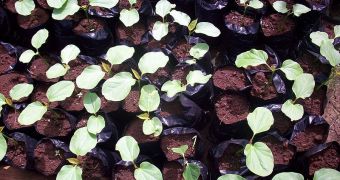The aviation is responsible for a large amount of greenhouse gas emissions reaching the atmosphere and lowering air quality every year. In order to minimize this threat while saving some money, researchers have scaled up efforts to advance research for the new generation of plant-based biofuels.
At this point in time, such biofuels are reliable enough to be implemented and used widely, but their prohibitive production costs make them unsuitable for a proper exploitation, the New York Times informs.
A company from San Diego, SG Biofuels, has recently announced its eagerness to back further tests proving the efficiency of green fuel obtained from jatropha with no less than $17 million (€13.3m).
At this point in time, this unlimited resource seems to be a modern Holy Grail, because it produces inedible fruits; therefore, the production of biofuel does not impact the food security system.
The main goal is to use jatropha to obtain cost-efficient fuel that can be used all across the Globe. The company has already experienced progress, managing to double the quantity of jatropha oil obtained, to approximately 350 gallons per acre.
“The funding comes at a time when we’re experiencing significant commercial adoption of our hybrid Jatropha and will be instrumental as we continue to expand our global footprint,” revealed representatives from SG Biofuels.
In order to lower production costs and maximize fuel output, the team of experts has focused on various methods, involving molecular breeding and biotechnology.
“SGB has signed customers for the deployment of 250,000 acres of Jatropha using its JMax™ hybrid seeds. This includes an agreement with JETBIO, leader of a multi-stakeholder initiative including Airbus, the Inter-American Development Bank, and TAM Airlines, to deploy 75,000 acres in Brazil for the production of bio jet fuel,” stated officials from SG Biofuels.
After testing a special mixture of jatropha, camelina and animal fats, Lufthansa experienced a greenhouse gas reduction of up to 60%. Following the same path, the entire industry could become more eco-friendly, succeeding in halving emissions by 2050.

 14 DAY TRIAL //
14 DAY TRIAL //